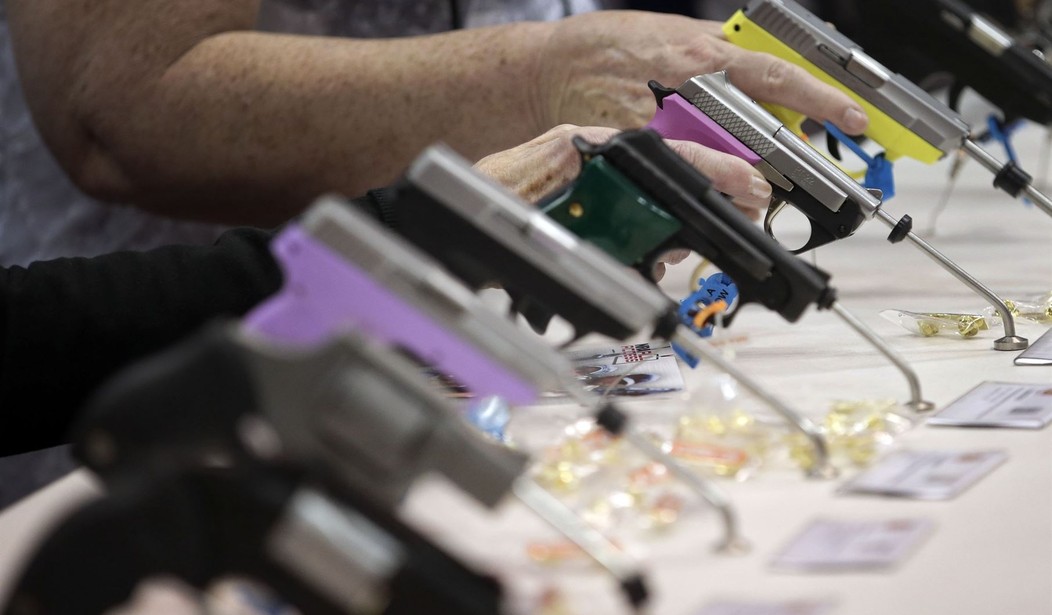We’ve been waiting longer for a jury verdict in the Rittenhouse trial than I and many others expected, and I think the tension is getting to some people, because the bad takes seem to be getting worse as deliberations drag on. And I’m not just talking about the rampant speculation and rumors about what the jurors might be considering behind closed doors. There’s an attempt underway on the Left to try to imbue the Rittenhouse trial with an almost apocalyptic importance; if Kyle Rittenhouse isn’t convicted, then it’s a sign that the country is broken beyond repair.
One recent example of this kind of nonsense; a piece by Eric Levitz at New York magazine arguing that Rittenhouse’s claim of self-defense poses a threat to the rule of law.
Rittenhouse’s self-defense claims boast legal plausibility. But they also illustrate the difficulty of reconciling mass gun ownership and expansive rights to self-defense with the rule of law.
Rittenhouse’s killing of Rosenbaum may have been lawful. But that was scarcely self-evident to the bystanders who heard gunshots and then saw a killer holding an AR-15. The group of protesters who proceeded to chase and attack Rittenhouse could have reasonably believed that killing the armed teenager was necessary to save others from imminent bodily harm. If Rittenhouse had a right to shoot Huber and Grosskreutz in self-defense, the latter had a similarly legitimate basis for shooting Rittenhouse dead.
Put differently: Once Rittenhouse fired his first shots, he and his attackers plausibly entered a context in which neither could be held legally liable for killing the other. Whether one emerged from this confrontation legally innocent or lawfully executed hinged on little more than one’s relative capacity for rapidly deploying lethal violence. Rittenhouse had a more powerful weapon and a quicker trigger finger than Huber or Grosskreutz. Thus, he may well walk free, in full health, while Huber lies in a grave and Grosskreutz gets by without the bulk of his right bicep.
This outbreak of “Wild West” rule isn’t as anomalous as one might hope. America’s culture of vigilantism, high rate of gun ownership, and increasingly permissive self-defense laws have conspired to turn “kill or be killed” scenarios into a regular occurrence.
As it turns out Levitz isn’t really arguing that Rittenhouse’s self-defense claims pose a threat to the rule of law. No, it’s gun ownership itself that’s the problem. If we didn’t have all these armed people running around, then these self-defense arguments wouldn’t be so darned complicated.
Look, there’s no doubt that the Rittenhouse case poses some complexities because the shootings took place in the midst of several nights of rioting and looting; a chaotic situation involving hundreds of people. That’s still not an indictment of either our right to keep and bear arms or our right of self-defense, no matter how hard Levitz might try to argue otherwise.
And despite Levitz’ initial thesis, he actually doesn’t try hard at all to make the case against self-defense. His target is squarely on the Second Amendment.
It is not obvious how (or even if) America’s self-defense laws should be reformed. As John Pfaff argues in the Washington Post, lowering prosectors’ burden of proof in self-defense cases may do more to imperil victims of alleged domestic violence like Marissa Alexander than to restrain right-wing vigilantes like Kyle Rittenhouse.
The fundamental source of the carnage in Kenosha, and the anarchic legal paradoxes it exposed, are America’s superabundance of firearms, self-appointed guardians of public order, and the culture that produced them. When anyone could have a gun, or be about to reach for someone else’s, every victim is a potential killer, and every killer potentially innocent.










Join the conversation as a VIP Member